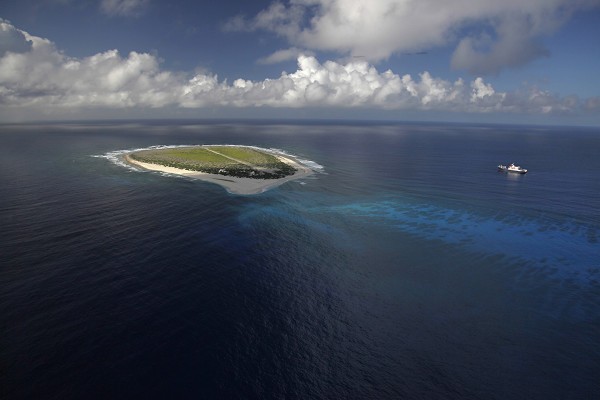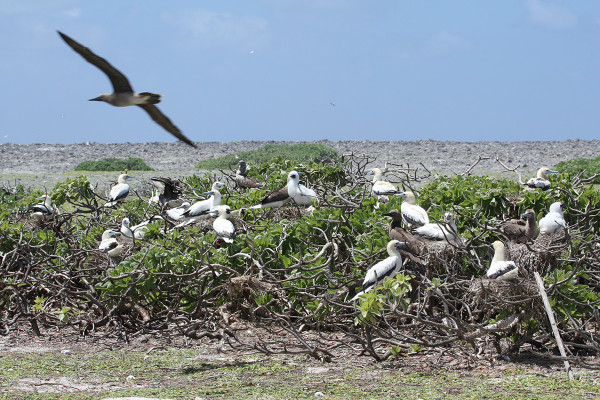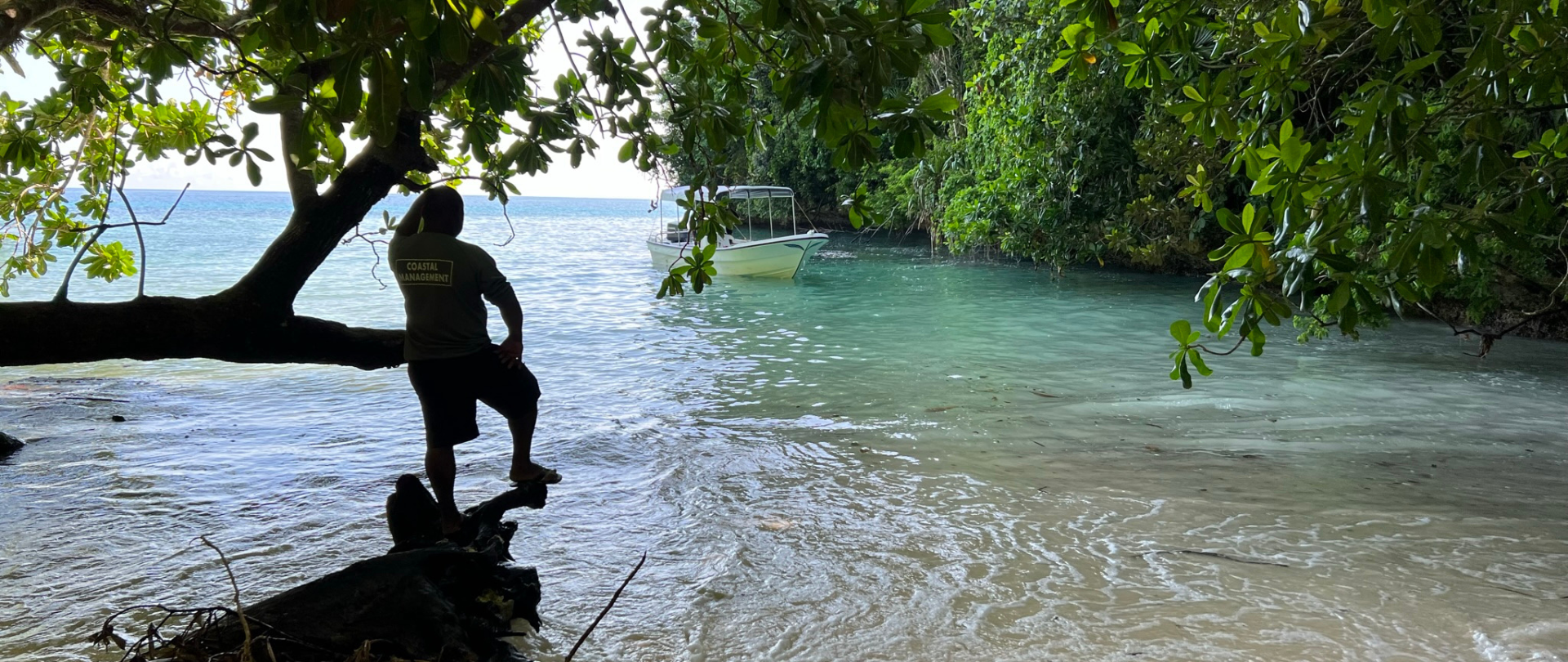October 29, 2025
Data Shows Endangered Palau Ground Doves Swiftly Recovering After Successful Palauan Island Conservation Effort
Astounding evidence of recovery on Ulong Island in Palau after just one year!
Published on
May 10, 2016
Written by
Sara
Photo credit
Sara

In the beginning, Tromelin Island, a small, remote land mass off the coast of Madagascar, was a healthy home for a variety of bird and plant species. The island was beautiful and thriving until one day when people accidentally introduced rats. The island’s ecosystem began to collapse–six of the eight bird species native to the island could not cope with the invasive predators and native plants were devoured back by hungry rats.
 Nesting Red-footed Boobies on Tromelin Island. Photo by TAAF
Nesting Red-footed Boobies on Tromelin Island. Photo by TAAFThe island was facing a bleak future. It’s natural beauty and diversity were at risk of disappearing forever–Tromelin Island was on track to become a barren land mass crawling with rodents. But luckily, in 2005, French scientists from Le Réunion Island recognized the problem and set out to remove the invasive species. The eradication offered the island a chance to recover. Now, native plants that the rats had decimated are growing back, and three bird species have returned to the island.
The island is now one of a number of important reference ecosystems for environmental research, and one of many islands in the Western Indian Ocean which has benefitted from mammal eradications leading to spectacular recovery of species and ecosystems.
The recovery of Tromelin Island is a beautiful story that lends hope to the many other islands threatened by invasive species. Eradication projects clear the way for imperilled islands to rebound and thrive as they once did.
Read the original article by James Russell at National Geographic.
Check out other journal entries we think you might be interested in.

October 29, 2025
Astounding evidence of recovery on Ulong Island in Palau after just one year!

May 19, 2025
Read our position paper on The 3rd United Nations Ocean Conference (UNOC 3) to see why we're attending and what we aim to accomplish!

December 4, 2024
Ann Singeo, founder of our partner organization the Ebiil Society, shares her vision for a thriving Palau and a flourishing world of indigenous science!

November 22, 2024
This historic agreement aims to protect the marine and coastal areas of the Southeast Pacific.

November 18, 2024
Our projects to restore key islets in Nukufetau Atoll forecast climate resilience and community benefits in Tuvalu!

October 3, 2024
Island Conservation and partners have published a new paper quantifying ecosystem resilience on restored islands!

September 10, 2024
Climate Week NYC: what is it and why is it important? Read on to find out why Island Conservation is attending this amazing event!

September 5, 2024
With sea levels on the rise, how are the coastlines of islands transforming? Read on to find out how dynamic islands really are!

December 14, 2023
Join us in celebrating the most amazing sights from around the world by checking out these fantastic conservation photos!

November 28, 2023
Rare will support the effort to restore island-ocean ecosystems by engaging the Coastal 500 network of local leaders in safeguarding biodiversity (Arlington, VA, USA) Today, international conservation organization Rare announced it has joined the Island-Ocean Connection Challenge (IOCC), a global effort to…